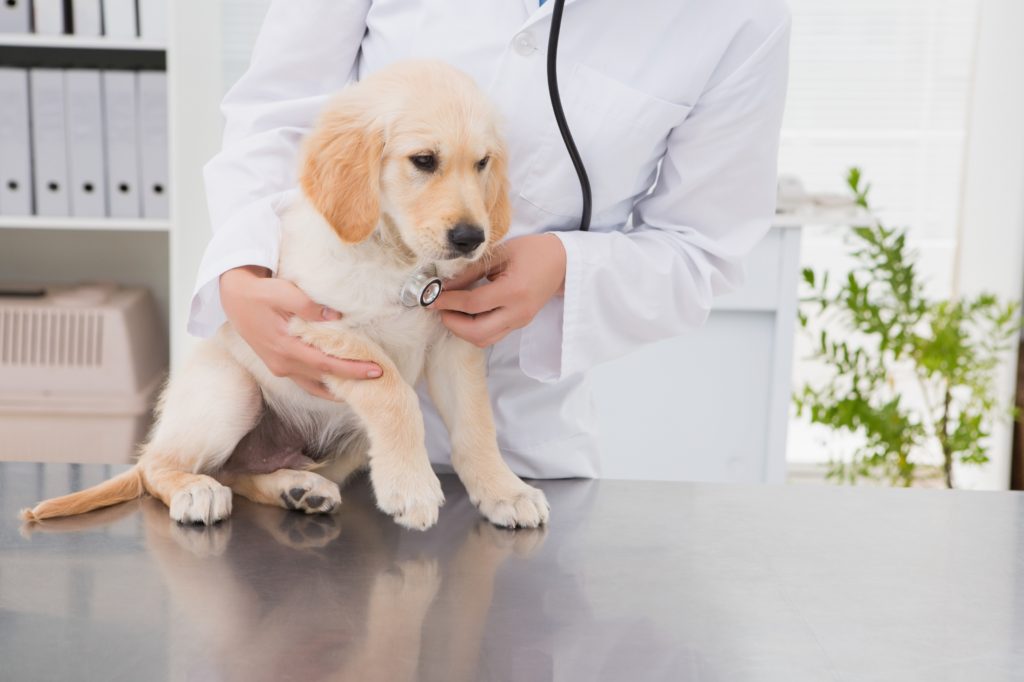Estimated reading time: 6 minutes
Why Vaccinate?
The most recent PDSA PAW Report found alarming drops in the number of cats and dogs having primary and ‘booster’ vaccinations. Whether to vaccinate, what for, and how often are popular and sometimes explosive topics on pet social media groups and replies are often conflicting. What is a pet owner to do?
How Vaccines Work
Vaccines contain dead or modified bacteria or viruses, or components of bacteria or viruses. They prepare the body for fighting a real infection by stimulating the immune system. The immune system ‘remembers’ the threat for a period of time and can react more quickly after vaccination than if it hadn’t ‘seen’ the bacteria or virus before. Vaccination can prevent illness, reduce the severity of illness, and prevent dogs shedding the disease into the environment.
Vaccines don’t always provide protection; some dogs won’t mount an effective immune response due to genetic differences, illness, or medications.

Vaccines can cause side-effects. Most are short- lived and to be expected. Common, mild side-effects include a swelling where the injection was given, tenderness where the injection was given, and being ‘off colour’ for 24hours (as the body mounts its immune response). Vaccines rarely cause more serious illness; they can trigger anaphylactic reactions, autoimmune disease or epilepsy in susceptible dogs. Cats can develop tumours at the injection site, but this has been far more common in America than the UK. Studies have shown that illness is no more likely after a visit to the vets for a vaccine than after a visit for another reason.
If enough animals are vaccinated, they can protect those who are too young or too sick to be vaccinated, or who don’t respond. This is called ‘herd immunity’. If the PDSA report is accurate, there are not enough vaccinated pets to protect the vulnerable in a disease outbreak.
Dogs
Dogs in the UK should be vaccinated against Distemper, Hepatitis (Adenovirus), Parvovirus, and Leptospirosis. Rabies vaccination is only required for dogs travelling abroad. Kennel Cough vaccine is advised for dogs that use kennels, groomers, dog walkers, or attend training or shows (but must not be given where a dog will be in contact with immunosuppressed people).
Parvovirus remains a common illness in the UK. The virus causes vomiting, bloody diarrhoea, and immune suppression. Affected dogs require barrier nursing (to reduce the risk of spread) and intravenous fluids. Despite expensive veterinary care many affected dogs still die. Cases are most common in puppies from puppy farms.
Distemper had become very uncommon in the UK, but cases have been on the increase. Symptoms can be innocuous: starting with conjunctivitis and a snotty nose. But affected dogs can develop severe joint pain and neurological signs. Many die. Recovered dogs can be left with thick pads (an old name for distemper was ‘hard pad’) and tremors.
Infectious hepatitis is the least commonly encountered, but, as herd immunity falls, vets expect to see cases. The virus causes liver damage and is fatal in 30% of cases.
Leptospirosis is endemic in the UK and can be spread by rodents and farm animals, as well as surviving in waterways, ponds, and ditches. It causes Weill’s Disease in humans and can be passed from infected dogs to humans. Vets see regular suspected cases of Leptospirosis in dogs, where the most common symptoms are kidney and liver failure. Unfortunately, definitive diagnosis is often declined for cost reasons so confirmed case numbers are lower. New strains of Leptospirosis have arrived in the UK so many vets will advise a 4-strain vaccine. This offers cross protection against 85% of the known strains. Leptospirosis in dogs can be treated but requires intravenous antibiotics and barrier nursing to reduce the risk to other pets and hospital staff. Not all pets survive, and those that do may shed the disease for some time after recovery. The leptospirosis vaccine is the most controversial. It does carry a higher risk of causing reactions, but less than 7 suspected reactions are reported for every 10,000 doses given, and less than 1 in 10,000 is considered a severe reaction.
Most UK DHP dog vaccines are licenced to be given every 3 years after the initial puppy course and booster at 1 year. Leptospirosis vaccines must be given once a year.
Cats
All cats should be vaccinated for ‘flu’ and enteritis (Panleucopaenia) as even indoor cats are at risk from these viruses being brought into the house.
Panleucopaenia is similar to Parvovirus in dogs and causes vomiting, diarrhoea, immune suppression and death in many cases.
Cat ‘flu’ is a respiratory infection with several causes, most commonly Herpesvirus and Calicivirus. Infection can be life threatening in kittens and recovered cats may continue to have relapses throughout their lives. Infection of a pregnant cat can affect the brain development of her kittens, or even kill them.
Feline leukaemia virus is a complex disease which causes few signs when contracted but will cause immune system problems and development of lymphoma in many infected cats. Vaccination is recommended for any cats that go outdoors and breeding cats as it is spread by close contact, breeding, and grooming.
After the initial kitten course and first year booster, Panleucopaenia and FeLV vaccines can be given every 3 years, but ‘flu’ is given once a year.
What If I Don’t Want To Vaccinate
There is no requirement for compulsory vaccination in the UK (except rabies for dogs travelling outside the UK). Your pet will not be allowed to use kennels/ catteries if unvaccinated and many groomers, dog boarders, dog walkers, training classes and shows will not allow unvaccinated animals. Your pet insurance may be totally or partially invalid if you do not vaccinate in accordance with your vet’s advice. Pets visiting schools, hospitals, and nursing homes may also be required to be vaccinated against certain diseases (or not allowed to have Kennel Cough vaccination).
It is not only your pet who is at risk if they are not vaccinated but also the humans they pose a risk to (Leptospirosis) and all the other animals who can’t be vaccinated.
Titre Testing
For DHP in dogs, and Panleucopenia in cats, you can have a blood test done to see if they have circulating antibodies. A positive result means you don’t need to give a vaccination. A negative result means your pet may not have protection and revaccination is required. It is recommended to repeat these tests every year. Titre testing is not available for Leptospirosis, FeLV, or cat ‘flu’.
Questions?
PLEASE talk to your vet about vaccination! Most vets are very happy to discuss the right vaccination programme for your pet, and to discuss the risks and the benefits.


